Common Scams in Thailand (and how to avoid them)
Scams are an unfortunate part of life.
No matter where you go on this planet, there will be some percentage of bad people who want to take advantage of you.
Thankfully, in my 6+ years in Thailand, I can say I’ve encountered very few people trying to scam me here.
Most Thai people are very friendly, honest, and welcoming people.
But with that said, scams do still happen every day, especially to those who are unaware or new to Thailand.
So here some of the most common scams to watch out for in Thailand:
1. “X” is closed/TukTuk scam
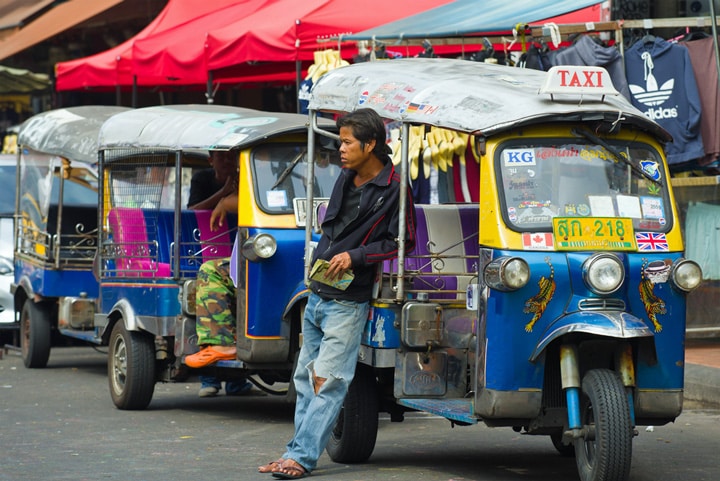
This is one of the scams on the list I’ve personally encountered. And it comes in a few different variations. In my particular case, I went up to a taxi driver asking where I can find a van to another city. Rather than pointing me to the bus station just down the road, he lied and said,
“No more van. They closed already. Come, I take you. 800 baht.”
When I told him I didn’t think it was closed, he kept insisting that it was closed and that his taxi was the only way back.
At first I believed him, but his pushy attitude and desperation made me suspicious, so I decided to walk around a bit to find the bus station.
And when I found it, everything was open like normal and I was able to get a bus for a fraction of the price the taxi driver would have charged me!
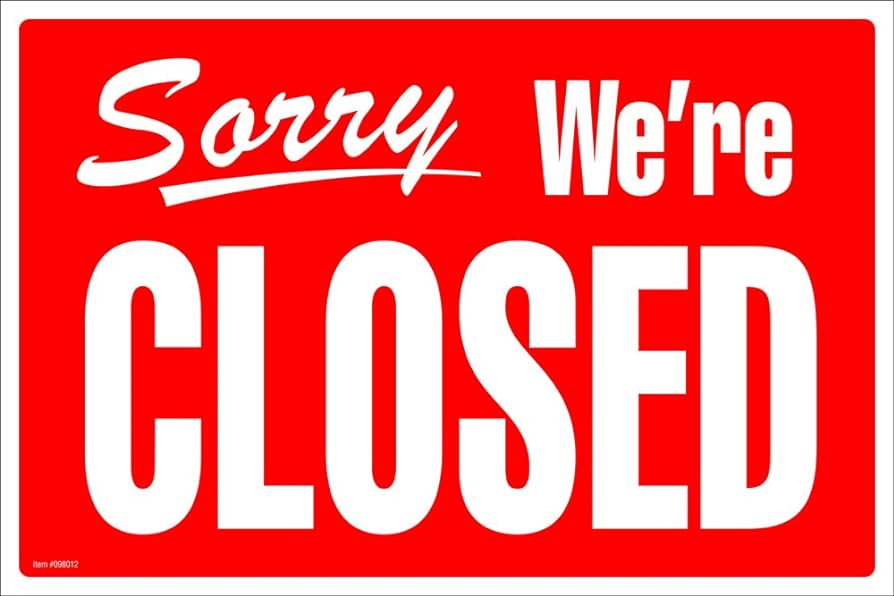
Other tourists often encounter this scam near tourist attractions. You will be close to the entrance but someone out front (often dressed well and speaking English well) will tell you that the place is closed (when it’s actually open) and they’ll suggest another place to go to.
And they just so happen to have a tuk tuk or taxi around the corner to take you there. That’s why this one is also called the “tuk tuk scam” too.
If you do fall for it and go with this guy, he’ll usually take you on a tour from shop to shop where they can pressure you to buy and (he’ll get a commission if you buy anything).
But thankfully, this scam is pretty easy to avoid.
When someone tells you something is closed and they are selling you an alternative, it’s probably a scam.
Just politely refuse and walk on.
2. No Meter Taxi
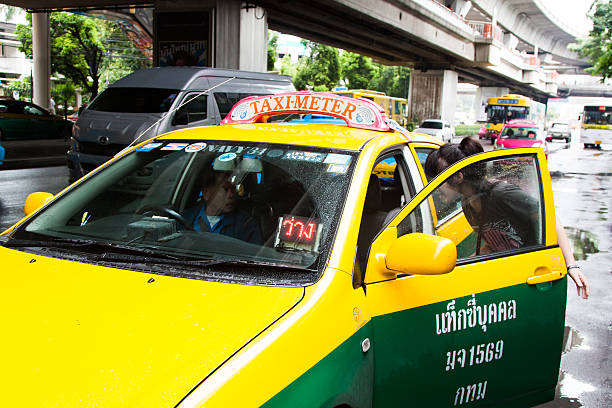
For whatever reason, taxi drivers all over the world have a reputation for being scammy.
Although most of the taxi drivers are honest people just trying to make a living, it does seem like there are quite a few scammers in the mix as well.
The most common one I’ve seen in Thailand is the “No Meter” scam. You get in the taxi and tell him where to go, and rather than allowing the meter to fairly set the price, the taxi driver just tells you a price.
This price is always inflated (or else the taxi driver would have no problem using the meter in the first place).
It’s illegal for taxi drivers to do this, but it’s difficult to enforce so it happens quite a bit (especially in touristy areas).
But this scam is also pretty easy to avoid. If you want to use a taxi, just say “meter?” before you get in. If he says no then walk away. You’ve just saved yourself from a scammer.
But there is an even better alternative, and that is to not even use taxis! Ridesharing apps like Bolt and Grab and much better options in my opinion.
The price is calculated before you even accept the ride so there’s no risk of being overcharged or swindled.
I use Bolt weekly and I’ve never had a single issue with scammers or aggressive/pushy behavior from anybody.
It’s usually a lot cheaper than taxis as well.
3. No change
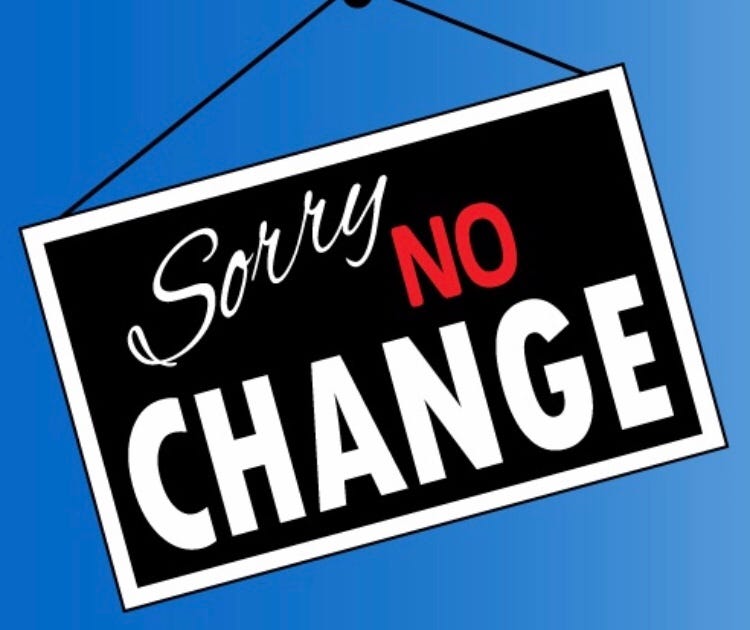
This is another fairly common scam with tuk tuks, taxis, and motorcycle taxis (mainly only in tourist areas though).
You finish your ride, arrive at your destination, and when you go to pay, they say that they aren’t able to give you change.
Unless you are using bills way over the fare (like on a short 40 baht motorcycle taxi trip trying to give him a 500 baht or 1000 baht note), then he is probably trying to scam you.
They are most likely pretending they don’t have the correct change so you’ll be forced to pay a higher rate.
If this does happen to you, I don’t recommend fighting it at the time.
There’s no point getting into a bad situation over a slightly higher bill than expected (that amounts to no more than a couple extra dollars when you convert it from baht).
But the way to prevent this scam is to make sure you always carry small bills with you so you can give near the exact price every time.
I’m in the habit of going to large chains like 7/11 and always paying with 1000 baht notes because they always have the change. That way, I will always have plenty of 20 baht, 50 baht, and 100 baht notes to use for street food or transportation.
Alternatively, a lot of people will accept digital payments now as well, so if you have a Thai bank account you may be able to transfer the exact amount directly to their phone.
4. Adding extra charges on to the bill
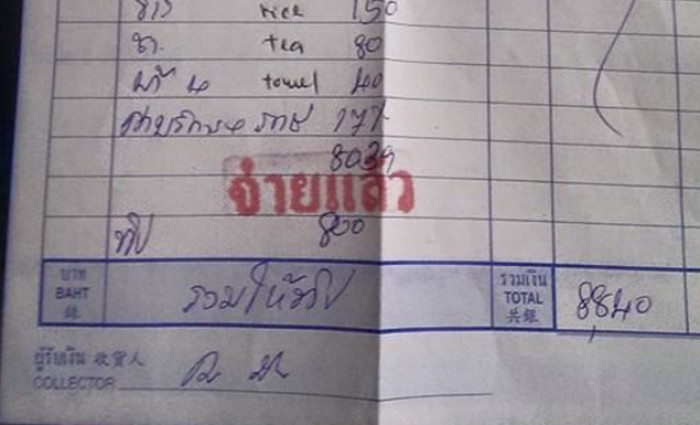
Another common scam in Thailand is extra items/charges added onto your bill. You may encounter this at a restaurant or bar.
Bars especially have been known to do this because drunk customers often don’t check their bill carefully!
But please keep in mind that sometimes it may just be an honest mistake. It happens. Other times, this is an intentional scam to pocket a bit of extra money from each customer.
The way to avoid this is to have good awareness. Add up the prices of the items on the menu yourself so you know what the final bill should be.
And if you are at a bar, it would be wise to pay for each drink as it comes rather than allowing a big tab to build up.
Related to this is giving back the incorrect change. Maybe the bill is correct, but they shortchange you.
Again, sometimes it may be an honest mistake, but just have a quick check that you’ve gotten the proper change before you leave.
5. Damaged motorbike rental or jet ski rental scam
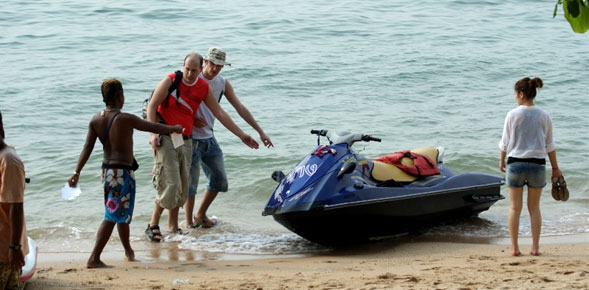
Another common scam you may encounter in Thailand is at motorbike rental shops or jet ski rental shops.
You rent one that already has some defect like a scratch or crack, but when you return it back to the shop they claim that you’ve caused the damage and need to pay!
It’s especially problematic as some places will require you to give your passport or a sum of money as a deposit.
And if you don’t pay for the “damages” they won’t return your deposit or give back your passport.
I have a few recommendations to avoid this scam:
First, never give your passport to them. If they can hold your passport “hostage” it can put you in a bad situation. So it may be helpful to have some scans of your passport pages you can give out if they just want them for identification purposes.
Second, make sure you go to reputable shops that have lots of positive reviews.
Third, make sure you check for defects, scratches, or imperfections before you ride away.
And a side note is that jet ski rentals have had such a bad reputation for being scammers that some people (like me) just avoid them altogether. Jet skis are fun, but it’s not worth getting scammed, so I stay away completely.
This is not the same with motorbike rental shops. Many people rent bikes every day here with no issue. Just be careful and follow the steps above.
6. Ping Pong Show Scam/Go Go Bar Scam/Nightlife Scam

It’s no secret that parts of Thailand have huge red light districts. And in those areas, you’ll see promoters standing around trying to invite you into their establishment.
These are usually men holding a sign showing explicit pictures of what you can see in the Ping Pong Show.
For those unfamiliar, it’s an adult show involving women doing tricks with a certain part of their body!
These promoters will try to get you to go have a “quick look” for free, but once you’re up there, you’ll be told you need to pay up or else.
The way to avoid this is to probably avoid going to these Ping Pong shows altogether.
But if you do decide to go, don’t expect a “free preview”.
Go in with the expectation that you are going to have to pay to see the show.
If you’ve been scammed, what should you do?
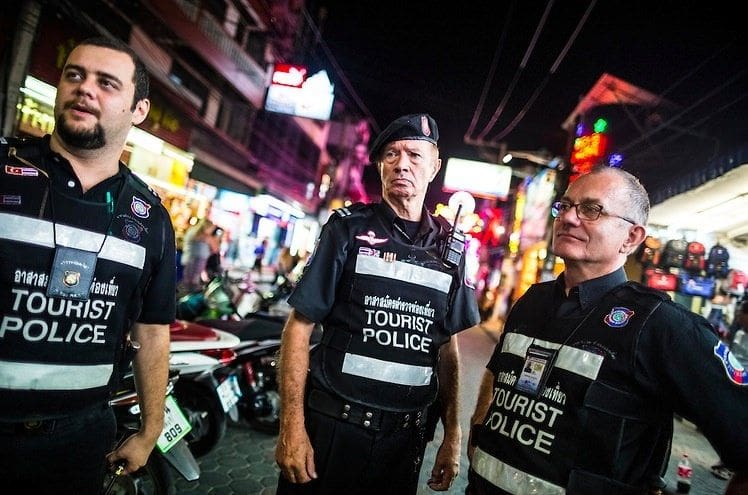
Try to contact the local tourist police or call their toll free number by dialing 1155. They have experience dealing with this sort of thing and can help you file a police report if needed.
In Summary
Once again, I want to reiterate that most Thai people would never dream of scamming anybody! Thailand is a very safe place and you shouldn’t be worried.
As long as you are always aware of your surroundings and trust your gut, you should be completely fine. If something seems sketchy, just move on.
Sign up to be notified straight away about new blog posts and new jobs in Thailand.
P.S.
If you want to learn Thai, ThaiPod101 is a great resource to get you started. They give you a bunch of free resources to level up your Thai language skills in the shortest time possible. If you are interested, please click the link below:
ThaiPod101.com - The Fastest Way to Learn Thai Guaranteed

Comments